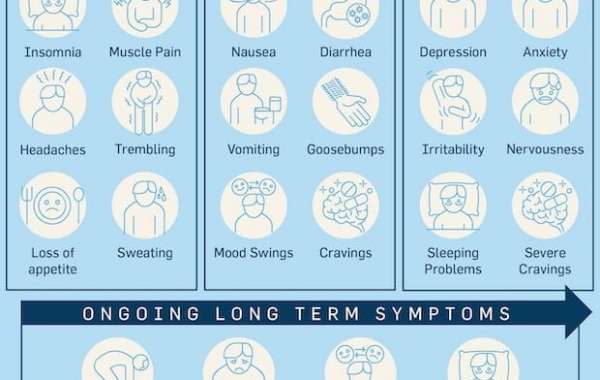Whether you're in the early stages of becoming addicted to fentanyl or you've been taking it for years, you need to learn how to deal with the symptoms of fentanyl detox. Fentanyl addiction can be a serious problem, and it's important to know how to minimize the risk of a fatal overdose.
Treatments for fentanyl addiction
Whether you're just starting to feel the effects of fentanyl addiction or you're already dependent on it, there are a number of treatment options available. Getting treatment can help you to get sober and start living a life free of substance abuse. The process may take several months or even a year, depending on your individual needs.
Medication-assisted treatment, also known as MAT, is a method of treatment for substance abuse that uses medications alongside counseling to help you stop using drugs. These medications help you to get through withdrawal and reduce the cravings that you have. The medications are all approved by the Food and Drug Administration and are customized to your individual needs.
You'll also be offered other forms of treatment, such as counseling and therapy. These therapies can help you to change your attitudes about drugs and your life. They can also help you develop healthy life skills.
A residential fentanyl rehab will provide you with treatment, life skills training, and peer support. You'll also have access to medications that will help you avoid overdose. These medications are designed to reduce the physical and psychological symptoms of withdrawal and prevent accidental overdoses.
Outpatient treatment can be a good option for people who aren't ready to commit to a residential rehab program. These programs can help you deal with withdrawal and build a relapse prevention plan.
Symptoms of fentanyl withdrawal
Symptoms of fentanyl withdrawal can be extremely uncomfortable. Depending on how long you've used fentanyl, your symptoms may start within six hours after you stop using. However, they may be severe at any point during the withdrawal process. It's important to seek medical assistance for your symptoms.
During fentanyl withdrawal, your body will experience a large number of chemical changes. You may experience nausea, fever, chills, muscle pain, vomiting, restlessness, and insomnia. You may also have cravings for the drug. Depending on your underlying health condition and the severity of your addiction, your symptoms may last for several weeks or months.
There are medications that can help reduce the symptoms of fentanyl withdrawal. Anti-anxiety medications and sleep aids can also help relieve symptoms.
Fentanyl withdrawal can be very dangerous. It's important to seek medical care at a treatment facility for fentanyl withdrawal. They can help you wean off the drug slowly and reduce your chances of relapse. Symptoms of fentanyl may last for several weeks or months, depending on your health and addiction.
When you start to experience symptoms of fentanyl withdrawal, you may begin to feel dizzy, nauseous, fatigued, or even depressed. You may also experience vomiting and diarrhea. You may also experience an increase in your earlier withdrawal symptoms, such as fever and nausea.
Reducing the risk of a fatal overdose
Fortunately, there are steps you can take to reduce your risk of a fatal overdose. One such measure involves a fentanyl test strip. Using a fentanyl test strip will reveal whether or not you are taking a legitimate prescription or if you are actually ingesting a counterfeit version.
Another way to reduce your risk of an overdose is to never use drugs while you are alone. In addition to keeping yourself safe, you should also notify someone where you are and call 911. This will make sure emergency responders are aware of where you are at all times.
You can also purchase a fentanyl test strip from your local health department. You should be aware that fentanyl is often mixed with other drugs, so the strength of the drug can vary from time to time.
In addition to using a fentanyl test strip, you should keep your eyes and ears open. Some illegal drugs contain fentanyl, so watch out for fentanyl-laced heroin and cocaine.
The best way to prevent an overdose is to avoid drug misuse altogether. Those who use drugs after a period of abstinence are at a higher risk for an overdose. In addition to drug misuse, other factors, such as alcohol and social isolation, also play a role.








